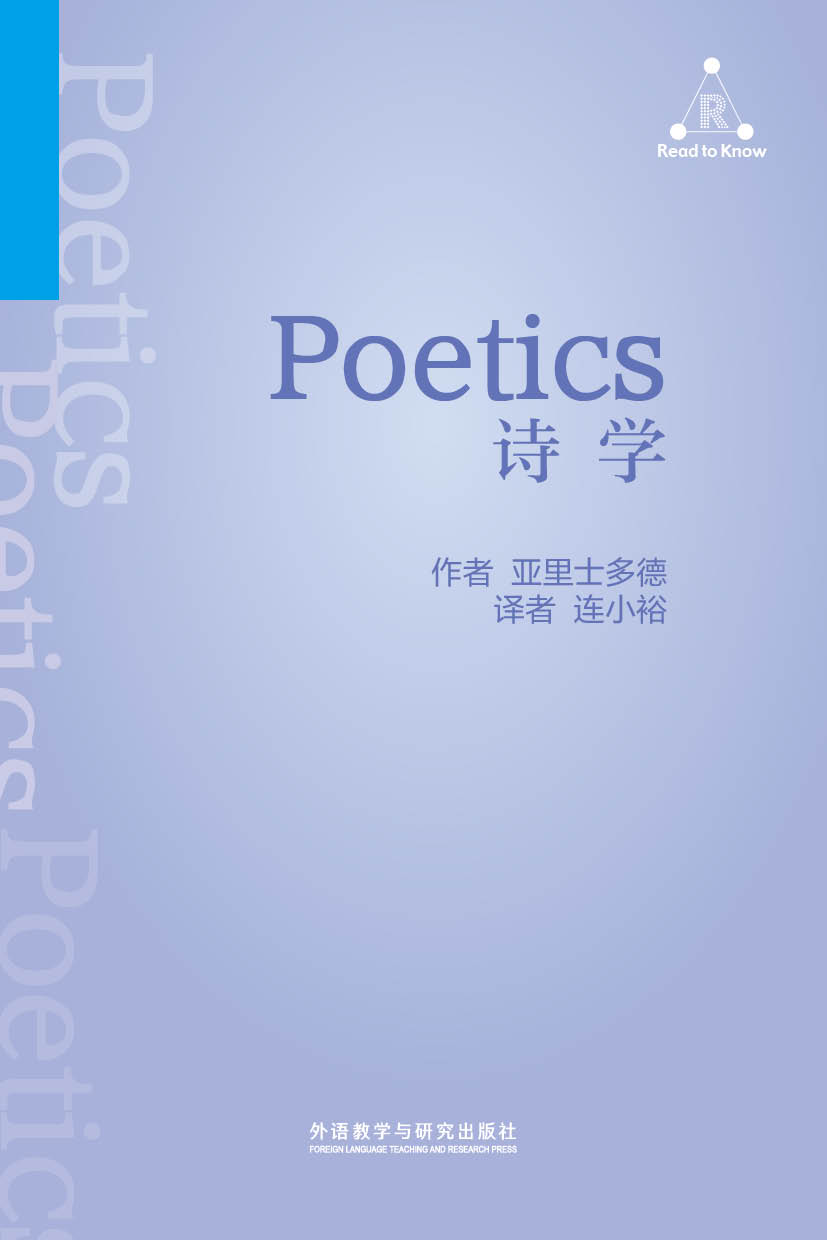艺术的本质是摹仿;而悲剧是对于一个严肃、完整、有一定长度的行动的摹仿。
《诗学》是古希腊哲学家亚里士多德的著作,也名《论诗》。《诗学》是西方文明第一部系统的美学和艺术理论作品,为西方文论奠定了基础。《诗学》主要谈及悲剧、喜剧和史诗。现在只有第一卷(讨论悲剧和史诗)流传下来;讨论喜剧的第二卷不幸失传。现存的第一卷有26章,主要考究悲剧和史诗, 有六分说、五分说、三分说3个分法。
While it is believed that Aristotle's Poetics comprised two books – one on comedy and one on tragedy – only the portion that focuses on tragedy has survived. Aristotle taught that tragedy is composed of six elements: plot-structure, character, style, thought, spectacle, and lyric poetry. The characters in a tragedy are merely a means of driving the story; and the plot, not the characters, is the chief focus of tragedy. Tragedy is the imitation of action arousing pity and fear, and is meant to effect the catharsis of those same emotions. Aristotle concludes Poetics with a discussion on which, if either, is superior: epic or tragic mimesis. He suggests that because tragedy possesses all the attributes of an epic, possibly possesses additional attributes such as spectacle and music, is more unified, and achieves the aim of its mimesis in shorter scope, it can be considered superior to epic.
- 第一章
- 第二章
- 第三章
- 第四章
- 第五章
- 第六章
- 第七章
- 第八章
- 第九章
- 第十章
- 第十一章
- 第十二章
- 第十三章
- 第十四章
- 第十五章
- 第十六章
- 第十七章
- 第十八章
- 第十九章
- 第二十章
- 第二十一章
- 第二十二章
- 第二十三章
- 第二十四章
- 第二十五章
- 第二十六章
- Chapter 1
- Chapter 2
- Chapter 3
- Chapter 4
- Chapter 5
- Chapter 6
- Chapter 7
- Chapter 8
- Chapter 9
- Chapter 10
- Chapter 11
- Chapter 12
- Chapter 13
- Chapter 14
- Chapter 15
- Chapter 16
- Chapter 17
- Chapter 18
- Chapter 19
- Chapter 20
- Chapter 21
- Chapter 22
- Chapter 23
- Chapter 24
- Chapter 25
- Chapter 26













 京公网安备 11010802032529号
京公网安备 11010802032529号
笔记加载中...